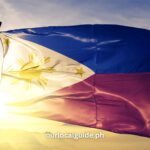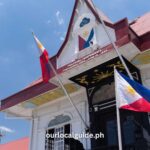Introduction
Every year on June 12th, the Philippines bursts into a vibrant celebration of freedom and independence. This day marks the anniversary of the country’s declaration of independence from Spanish rule in 1898, a pivotal moment that shaped the nation’s history and identity.
Across the archipelago, the air fills with a sense of pride and joy as Filipinos commemorate their ancestors’ struggle for sovereignty. Independence Day in the Philippines is not just a day off; it’s a heartfelt celebration of national unity, freedom, and the enduring spirit of the Filipino people.
Historical Background
The quest for independence in the Philippines is a tale of heroism, sacrifice, and unwavering determination. For over three centuries, the Filipino people endured Spanish colonization, which brought about significant cultural and social changes but also ignited a desire for freedom.
The late 19th century saw the rise of a nationalistic movement, inspired in part by the execution of Dr. José Rizal, a reformist and national hero, in 1896. Rizal’s death galvanized the Filipino people, leading to the Philippine Revolution.
Led by revolutionary figures like Andres Bonifacio and later Emilio Aguinaldo, the Filipinos waged a series of battles against Spanish forces. On June 12, 1898, in the town of Kawit, Cavite, Aguinaldo declared the Philippines’ independence from Spain, raising the national flag and playing the national anthem for the first time.
This momentous event marked the birth of the Filipino nation, even as challenges lay ahead with the subsequent American and Japanese occupations before achieving true sovereignty post-World War II.
Celebrations and Traditions
Independence Day in the Philippines is a colorful and joyous affair, reflecting the country’s rich cultural heritage and patriotic spirit. Nationwide, the day begins with flag-raising ceremonies, most notably at Luneta Park in Manila, where heroes are honored, and the national anthem resonates.
Parades fill the streets with a mix of military precision and cultural dances, showcasing the country’s diverse traditions and the unity of its people.
Communities across the archipelago participate in various activities, from cultural shows highlighting traditional Filipino songs and dances to historical reenactments that bring the struggle for independence to life. Schools and local governments host events that foster a sense of national pride, including art contests, essay writing on patriotic themes, and public speaking engagements that delve into the nation’s history and heroes.
The day often ends with spectacular fireworks displays, lighting up the night sky in a nationwide celebration of freedom.
The Significance Today
For Filipinos, Independence Day is a powerful reminder of their forebears’ sacrifices for freedom and sovereignty. It’s a day to reflect on the nation’s journey, celebrate its achievements, and unite in its aspirations for the future. This annual celebration reinforces the values of freedom, democracy, and unity in diversity, reminding everyone of the strength and resilience that define the Filipino spirit.
In contemporary times, Independence Day also prompts discussions on national issues, encouraging citizens to ponder their roles in addressing challenges and contributing to the country’s progress. It’s a day that inspires a collective sense of responsibility towards preserving the freedoms won by past generations and fostering a just, equitable society.
Educational Impact
Independence Day serves as a significant educational tool, especially for the youth. Schools across the Philippines use this occasion to teach students about the country’s history, the heroes who fought for freedom, and the importance of patriotism. Educational programs and activities are designed to instill a sense of national pride and an understanding of the sacrifices made for independence.
Initiatives such as visits to historical sites, exhibitions, and interactive lessons aim to bring history to life, making it relevant and engaging for young minds. These efforts are crucial in ensuring that the spirit of Independence Day is passed down through generations, fostering a well-informed citizenry that appreciates its heritage and understands the importance of civic engagement.
Conclusion
Independence Day in the Philippines is more than a historical milestone; it’s a vibrant celebration of freedom, a reflection on national identity, and a commitment to the future. As Filipinos, both in the homeland and abroad, come together to celebrate this day, they reaffirm their dedication to the ideals of democracy, unity, and progress.
.Let us all embrace the spirit of Independence Day, cherishing the freedom we enjoy today and remembering the journey and sacrifices that made it possible. Happy Independence Day to all Filipinos! May this day inspire us all to contribute positively to our nation’s continuing story.
Related Posts
- Explore the historical significance and modern celebrations of Philippines Independence Day.
- Delve into the entrepreneurial spirit of the country with Famous Entrepreneurs in the Philippines.
- Learn about Clothing Brands in the Philippines, showcasing the nation’s fashion industry and cultural identity.















